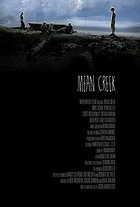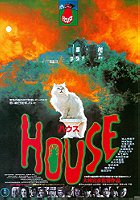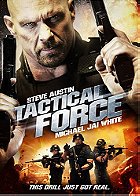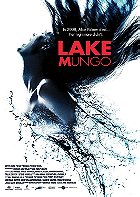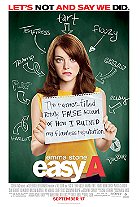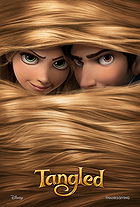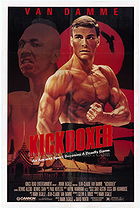If Weird Al Yankovic's song The Night Santa Went Crazy were ever adapted as a motion picture, the result would look like 2005's Santa's Slay, a fun and unapologetically bad-taste Yuletide-themed black comedy slasher romp. Movies as silly and goofy as Santa's Slay do not often work, but the resultant flick works because it knows what kind of film it is and does not take itself seriously. From top to bottom, this campy, tongue-in-cheek concoction is awesome for those who enjoy this type of schlock. It has everything: a badass killer Santa, a smoking hot blonde (Lost's Emilie de Ravin), strippers, bare boobs, the brutal murder of Fran Drescher, a James Caan cameo, and even a killer reindeer running over a grandfather.

Santa's Slay is about Santa Claus (wrestler Bill Goldberg), but this incarnation of the character is not the jolly fat guy we know and adore. As it turns out, Santa is the son of Satan who lost a bet with one of God's angels, forcing him into spreading cheer and goodwill for a thousand years. The story takes place as the thousand-year bet ends, and Saint Nick is free to murder and mutilate as much as he desires. On December 25th, he arrives in the small township of Hell (yes, Hell), riding on a sleigh driven by his "hell-deer" beasts to decimate the local population. The task of stopping the homicidal Kris Kringle falls to Nicolas (Douglas Smith), his would-be girlfriend Mary (the aforementioned Emilie de Ravin), and his eccentric grandfather (Robert Culp), who knows all about Santa's dark origins.
Are you sick of clichéd dysfunctional family Christmas films like Surviving Christmas and Christmas with the Kranks? Writer-director David Steiman clearly is, and he instantly lets us know about this perspective by completely skewering the very concept of such Yuletide movies. In the first scene of Santa's Slay, a bickering family - played by recognisable actors James Caan (Elf), Rebecca Gayheart (Urban Legend), Chris Kattan (Saturday Night Live) and Fran Drescher (The Nanny) - gather around for a Christmas lunch, creating the impression that we might be in for another dysfunctional family Christmas film. But then Goldberg's ruthless, Satanic Santa Claus promptly comes down the chimney and viciously murders them all in overzealous, funny ways, signalling that this is another type of Christmas movie. Heck, Steiman even pokes fun at holiday specials like Rankin/Bass's Rudolph the Red-Nosed Reindeer by illustrating Santa's history with a claymation sequence.

Despite the flick's obscure, low-budget, direct-to-video origins, Brett Ratner served as a producer on Santa's Slay. After writer-director Steiman worked as Ratner's personal assistant for several movies (including Red Dragon, Rush Hour 2 and The Family Man), this picture allowed Steiman to try his hand at actual filmmaking. Right off the bat, Steiman does a marvellous job, making it unfortunate that Steiman has not made another movie as of 2024. The tone of Santa's Slay is agreeably campy and light-hearted, and the filmmaking itself is rock-solid for such a budget production. The murders are ridiculously funny - Santa stabs someone with a menorah for crying out loud, and in another scene, Santa's sled runs an old lady off the road. This material is glorious. Steiman's script also deploys plenty of amusing one-liners (including a play on Santa exclaiming "Ho ho ho!") to supplement the picture's humorous lunacy. But the film is not perfect - the score by Henning Lohner is too cheap and chintzy, and the budget limitations are sometimes obvious. Indeed, one gets the sense that Steiman could have done more with a higher budget. Nevertheless, Santa's Slay is a fun movie, which is all that matters in the long run.
The notion of wrestlers becoming actors does not often work (see Hulk Hogan in Santa with Muscles...), but casting Bill Goldberg as Santa Claus here was a stroke of genius. Goldberg absolutely relishes the chance to play this role, delivering a suitably tongue-in-cheek performance as the normally cheerful Father Christmas. He is surprisingly adept with one-liners, too, and Goldberg's outfit is perhaps the most impressive retro Santa costume to ever appear in a motion picture. Meanwhile, the late great Robert Culp (instantly recognisable as the voice of Wallace Breen from Half-Life 2) looks to be having the time of his life as Nicolas's grandfather. However, in the role of Nicolas, Douglas Smith is the cast's weakest link, as he is underwhelming and wooden. At the other end of the spectrum, though, Australian actress Emilie de Ravin is terrific as Mary - she is gorgeous and appears in tune with the movie's goofy tone.

At its core, Santa's Slay is a genuinely clever take on Santa Claus and the Christmas myth, on top of just being a good fun movie. Ridiculously cheesy, briskly paced and brimming with off-kilter humour, this is great offbeat Christmastime viewing. Plus, it does not outstay its welcome, as it is mercifully brisk at a hair under 75 minutes. If cheerful Christmas movies are not your thing, this is the type of flick you should watch on Christmas Eve with beers and pizza, back-to-back with Bad Santa.
7.0/10
 Login
Login
 Home
Home 183 Lists
183 Lists 1662 Reviews
1662 Reviews Collections
Collections
 0 comments,
0 comments, 



